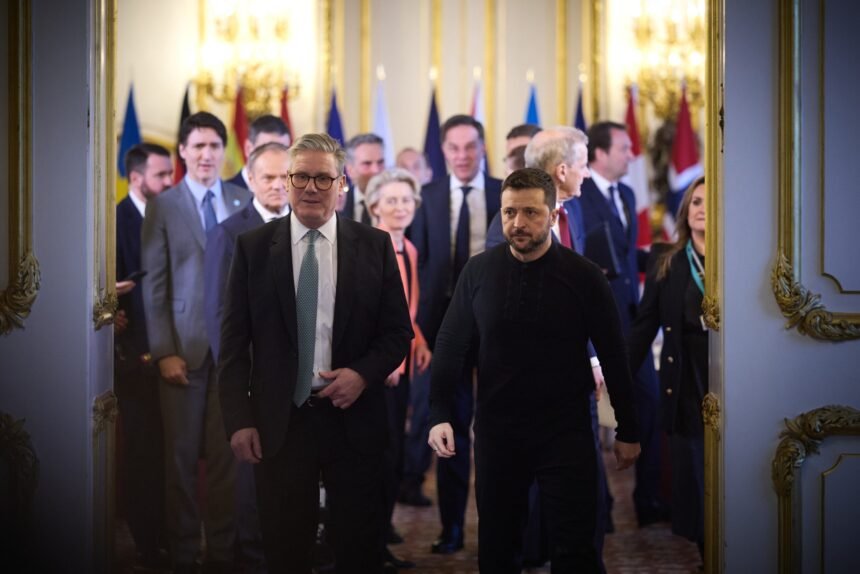As 27 European Union leaders gather in Brussels today, they are acutely aware that the post-1945 security order, which relies on the protection of the United States, could collapse at any moment.
Since the return of Donald Trump to the White House, European leaders have frequently discussed sovereignty and defense. However, according to European government officials who spoke to Politico, the time has come to turn words into actions—even though some already fear that things may spiral out of control.
While French President Emmanuel Macron warns of the need for an “extraordinary awakening,” German Chancellor Friedrich Merz dramatically declares that “Europe is five minutes to midnight,” many close to these discussions are worried that events are unfolding faster than Europe can handle.
“A nightmare scenario would be if the U.S. reached an agreement soon that accepts most of Russia’s demands and then tells Ukraine and Europe to accept or reject it,” warns Malcolm Chalmers, Deputy Director-General of the Royal United Services Institute in London.
Concerns About Orban
And the fear is not only directed at the United States. There are also concerns about their allies. While Thursday’s summit was convened urgently—just days after informal meetings in Paris and London—indicating a desire to find a solution, diplomats are already cautious about the possibility of pro-Russian leaders, led by Hungarian Prime Minister Viktor Orbán, undermining the agreement.
The large number of issues and the apparent lack of unity means the summit may take various directions. Leaders will discuss how to quickly redirect resources to strengthen national armies while also seeking support for Ukraine—such as reaffirming its path to EU membership. They will also attempt to further condemn Vladimir Putin’s regime, potentially by announcing a new round of sanctions.
In short, they have a difficult task ahead.
Von der Leyen’s Plan
One of the key topics at the summit will be the plan announced by Ursula von der Leyen on Tuesday—a package worth 800 billion euros for additional defense spending over the next few years. The most concrete part of the plan foresees the EU borrowing 150 billion euros, which would then be distributed to member states to purchase essential military equipment, including air and missile defense, artillery systems, rockets, munitions, drones, and other technology.
Additionally, the Commission proposes easing EU fiscal rules to allow countries to increase military spending. According to von der Leyen, increasing defense spending to 1.5% of GDP over four years would mean an additional investment of 650 billion euros in defense.
Although this plan has been in the works for some time, EU sources say that von der Leyen’s press conference on Tuesday was, in fact, a response to the U.S. decision to withdraw aid from Ukraine. The European Investment Bank has also proposed changes to its rules to make defense projects easier to finance. Diplomats are still analyzing the details of the proposal, but most consider it a first step in the right direction.
“Von der Leyen is trying to seize the initiative,” said a French minister, who, like others quoted here, spoke anonymously. The only question is whether the EU’s bureaucratic apparatus will follow suit.
Orban Blocks Aid to Ukraine Again
Intense discussions are already underway about sending additional military aid to Ukraine. The final declaration of the summit was expected to include a plan presented last month by EU foreign policy chief, Kaja Kallas, which would see at least 1.5 million artillery shells delivered to Ukraine this year, along with air defense systems, rockets, and drones.
While an official statement won’t be released until the summit concludes, a draft circulating among diplomats Tuesday evening and seen by Politico calls for ministers to find a way to ensure continued arms deliveries. However, Hungary has already made it clear that it opposes the plan. The draft text emphasizes that the EU “will continue to provide Ukraine with regular and predictable financial assistance.”
In 2025, the EU plans to provide Ukraine with 30.6 billion euros, including 12.5 billion from Ukraine’s Facility and 18 billion in G7-backed loans under the so-called “Era of the Initiative.” Additional funds could come from Europe’s Backward Europe Plan, which von der Leyen presented on Tuesday.
As European leaders debate the steps to take, messages of determination are coming from Ukraine. “Very painful, but not fatal,” a senior Ukrainian official told POLITICO. “This will cause unnecessary casualties and territorial losses, but it will not lead to our defeat.”







